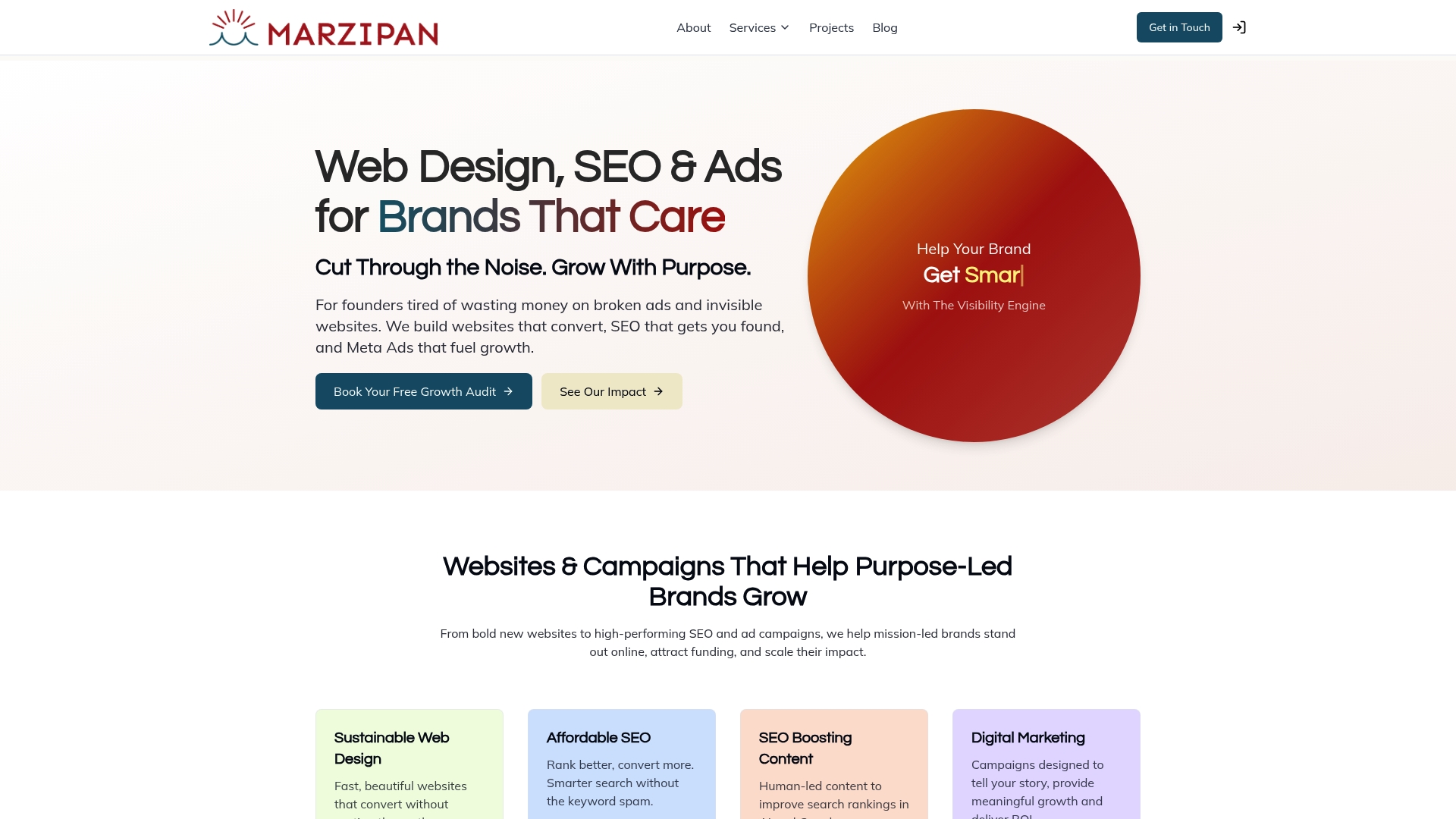7 Essential Australian SEO Tips for Online Success
Australian businesses are chasing higher rankings and stronger visibility online, and competition has never been fiercer. Yet while everyone talks about keywords and backlinks, most overlook the fact that over 90 percent of Australians now access the internet via mobile devices. The biggest gains often come not from broad strokes but from tuning into what makes the Australian market truly unique.
Table of Contents
- Understand Local Keyword Research
- Optimise Your Google My Business Listing
- Create High-Quality Local Content
- Build Local Backlinks
- Enhance Mobile Usability
- Monitor SEO Performance With Local Tools
- Stay Updated With Australian SEO Trends
Quick Summary
| Takeaway | Explanation |
|---|---|
| Conduct thorough local keyword research | Understand local phrases and nuances to connect with Australian consumers effectively. |
| Optimize your Google My Business profile | Ensure accurate and detailed business information to enhance local search visibility. |
| Create engaging local content regularly | Address Australian audience needs and incorporate local references for relevance and authenticity. |
| Build quality local backlinks | Collaborate with local entities and create valuable content to earn trustworthy backlinks. |
| Continuously monitor SEO performance | Use specialized tools for insights and adapt strategies based on performance data in the Australian market. |
1: Understand Local Keyword Research
Keyword research forms the foundation of any successful Australian SEO strategy. For businesses targeting the local market, understanding precise keyword selection becomes critical to connecting with potential customers effectively.
In the Australian digital landscape, keyword research goes beyond simple translation of search terms. It requires deep comprehension of local language nuances, regional search behaviours, and specific terminologies used by Australian consumers. Business Victoria highlights the importance of aligning keywords with terms potential customers actually use when searching online.
To conduct effective local keyword research, consider these strategic approaches:
-
Focus on location-specific phrases relevant to Australian markets
-
Integrate colloquial Australian terms and expressions
-
Analyse search volume and competition for each keyword
Utilising tools like Google Keyword Planner can provide invaluable insights into search trends specific to the Australian market. These tools help identify search volume, competition levels, and user intent behind specific keyword phrases.
Remember that successful keyword research isn’t just about volume but relevance. A keyword with lower search volume might convert better if it precisely matches your target audience’s search intent. Australian consumers appreciate specificity and authenticity in online content.
Professional SEO practitioners recommend regularly updating your keyword strategy. Search behaviours evolve, and what works today might become less effective tomorrow. Continuous monitoring and adaptation are key to maintaining strong search engine visibility in the competitive Australian digital marketplace.
2: Optimise Your Google My Business Listing
A Google My Business profile represents a crucial digital asset for Australian businesses seeking local search visibility. This free tool allows companies to manage their online presence across Google Search and Google Maps, providing potential customers with essential information about their services.
Business Victoria highlights the ongoing importance of maintaining an accurate and comprehensive business profile in the digital marketplace.
To maximise your Google My Business listing, consider these strategic optimisation techniques:
-
Ensure 100% accuracy of business name, address, and contact details
-
Upload high-quality, professional images showcasing your business environment
-
Encourage and respond to customer reviews promptly
Complete every available section of your profile with precise and current information. This includes business categories, operating hours, contact information, and a compelling business description that reflects your unique value proposition. Australian consumers appreciate transparency and detailed information when searching for local services.
Photographs play a significant role in attracting potential customers. Include clear, professional images of your storefront, products, services, and team. Visual content increases engagement and builds trust with your audience.
Customer reviews are another critical component of your Google My Business strategy. Actively encourage satisfied customers to leave positive reviews and respond professionally to all feedback. This demonstrates your commitment to customer satisfaction and helps improve your local search rankings.
Regularly update your listing with current information, special offers, and events. Google rewards businesses that maintain active and engaging profiles with improved search visibility. By treating your Google My Business profile as a dynamic marketing tool, you can significantly enhance your local online presence and attract more potential customers.
3: Create High-Quality Local Content
Content creation sits at the heart of successful SEO strategies for Australian businesses. Producing locally relevant, engaging content helps build credibility, attract targeted audiences, and improve search engine rankings.
The Australian Government’s Style Manual emphasizes the critical role of creating content that resonates with users and search engines alike.
When developing local content, consider these strategic approaches:
-
Focus on addressing specific challenges and interests of Australian audiences
-
Incorporate local references, terminology, and cultural nuances
-
Create content that provides genuine value and solves user problems
Localisation goes beyond mere translation. It requires understanding the unique characteristics of the Australian market. This means crafting content that speaks directly to local consumers, using language and examples that feel authentic and relatable.
Video content, blog posts, case studies, and local guides can be powerful tools for engaging Australian audiences. Each piece of content should demonstrate deep understanding of local market needs and provide actionable insights.
Keyword integration remains crucial, but prioritise natural, conversational language. Stuffing content with keywords diminishes readability and user experience. Instead, focus on creating informative, well-researched content that naturally incorporates relevant search terms.
Consider developing content that highlights local expertise. This might include showcasing local projects, sharing insights specific to Australian industries, or providing commentary on region-specific trends. Such content not only improves SEO but also establishes your business as a knowledgeable local authority.
Regularly updating your content demonstrates active engagement and helps maintain strong search engine rankings. Monitor performance metrics, track user engagement, and be prepared to refresh and adapt your content strategy based on audience responses and emerging trends.
4: Build Local Backlinks
Backlink building represents a powerful strategy for improving search engine rankings and establishing digital credibility within the Australian market. Quality backlinks signal to search engines that your website provides valuable, trustworthy content.
Australian Public Service (APS) highlights the importance of strategic link building as a critical off-page SEO technique.
When developing a local backlink strategy, focus on these key approaches:
-
Collaborate with local Australian businesses and industry associations
-
Create shareable, high-quality content that naturally attracts links
-
Participate in local community events and online forums
Local partnerships offer significant backlink opportunities. Engage with regional business networks, chambers of commerce, and industry-specific organisations. These connections can provide valuable backlinks while expanding your professional network.
Content marketing remains a powerful method for attracting natural backlinks. Develop comprehensive, informative resources that local businesses and publications would want to reference. This might include industry reports, local market analyses, or expert guides specific to Australian markets.
Sponsoring local events, contributing to community initiatives, or providing expert commentary can generate high-quality backlinks. Local news websites, community blogs, and industry publications often link to businesses that demonstrate genuine community involvement.
Avoid purchasing backlinks or using manipulative link-building techniques. Search engines have sophisticated algorithms that can identify and penalise such practices. Focus on earning links through genuine value and meaningful connections.
Regularly audit your backlink profile to ensure link quality. Remove or disavow low-quality or irrelevant links that might negatively impact your search rankings. Consistent monitoring and strategic link building will help improve your website’s authority and visibility in Australian search results.
5: Enhance Mobile Usability
Mobile usability has become a critical factor in search engine optimisation, with Australian users increasingly accessing digital content through smartphones and tablets. Google prioritises mobile-friendly websites in search rankings, making mobile optimisation essential for online success.
Australian Communications and Media Authority reports that over 90% of Australians now use mobile devices for internet access, underscoring the importance of responsive design.
To create an exceptional mobile user experience, consider these strategic approaches:
-
Implement responsive design that adapts seamlessly across different device sizes
-
Optimise page loading speeds for mobile networks
-
Ensure touch-friendly navigation and readable font sizes
Page speed represents a crucial element of mobile usability. Websites that load quickly retain users and perform better in search rankings. Compress images, minimise code, and leverage browser caching to improve mobile loading times.
Design navigation with mobile users in mind. Large, easily tappable buttons, simplified menus, and intuitive interface elements enhance user experience. Avoid cluttered layouts that frustrate mobile users and increase bounce rates.
Content readability matters significantly on smaller screens. Use legible font sizes, adequate line spacing, and concise paragraphs. Break up text with subheadings, bullet points, and visual elements to improve mobile reading experience.
Regularly test your website using Google’s Mobile-Friendly Test tool. This helps identify potential issues and ensures your site meets current mobile usability standards. Pay attention to technical aspects like viewport configuration, text readability, and touch element spacing.
Mobile optimisation is not a one-time task but an ongoing process. Continuously monitor mobile performance metrics, gather user feedback, and adapt your design to evolving user expectations and technological advancements.
6: Monitor SEO Performance with Local Tools
Effective SEO performance monitoring requires strategic use of specialised tools that provide insights specific to the Australian digital landscape. Understanding your website’s performance metrics helps businesses make data-driven decisions and continuously improve their online presence.
Digital Performance Standard emphasizes the critical importance of implementing robust monitoring frameworks for digital services.
When selecting SEO monitoring tools, consider these key capabilities:
-
Comprehensive keyword tracking for Australian search markets
-
Local competitor analysis features
-
Real-time performance reporting and insights
Australian businesses benefit from tools that offer granular local insights. Google Analytics and Google Search Console remain foundational, providing detailed metrics about website traffic, user behaviour, and search performance. Check out our no-fluff SEO audit tool for additional performance tracking capabilities.
Local SEO tools like SEMrush and Ahrefs offer specialized features for Australian markets. These platforms provide detailed insights into keyword rankings, backlink profiles, and competitive landscapes specific to regional search environments.
Mobile performance tracking is particularly crucial**, given the high mobile internet usage in Australia. Tools that offer mobile-specific analytics help businesses understand how their websites perform across different devices and network conditions.
Regularly review key performance indicators such as organic traffic, bounce rates, conversion rates, and keyword rankings. Set up custom dashboards that highlight metrics most relevant to your business objectives.
Remember that SEO is an ongoing process. Consistent monitoring and adaptive strategies are essential for maintaining and improving search engine visibility. Invest time in understanding the data and translating insights into actionable improvements for your digital strategy.
7: Stay Updated with Australian SEO Trends
The digital landscape evolves rapidly, making continuous learning crucial for maintaining competitive SEO performance. Australian businesses must remain agile and informed about emerging search engine strategies and technological shifts.
.au Domain Administration research highlights the critical role of digital skills in leveraging online opportunities.
To stay ahead of SEO trends, focus on these strategic approaches:
-
Subscribe to reputable Australian digital marketing newsletters
-
Attend local SEO and digital marketing conferences
-
Follow industry thought leaders and search engine blogs
Artificial Intelligence and machine learning are transforming search algorithms, creating more sophisticated ranking mechanisms. Understanding these technological advances helps businesses adapt their SEO strategies proactively.
Local industry resources like our SEO blog provide valuable insights into emerging trends specific to the Australian market. Regularly consuming content from trusted sources helps professionals stay informed about algorithm updates, emerging technologies, and best practices.
Networking with other digital marketing professionals can provide practical insights beyond traditional research. Join online forums, participate in webinars, and engage with local digital marketing communities to share knowledge and learn from peers.
Remember that SEO is not a static discipline. Successful digital strategies require constant adaptation and learning. Allocate time each week to explore new resources, experiment with emerging techniques, and refine your understanding of search engine optimization.
Below is a comprehensive table summarising the key Australian SEO strategies, actions, and benefits outlined in the article for strengthening local online success.
| SEO Tip | Key Action(s) | Main Benefit to Australian Businesses |
|---|---|---|
| Local Keyword Research | Use Australian phrases, regional language, and analyse local search trends | Connects with local consumers and improves search relevance |
| Google My Business Optimisation | Update profile details, upload quality images, manage customer reviews | Enhances visibility in local Google Search and Maps |
| High-Quality Local Content | Create locally relevant, value-driven content reflecting Australian culture and terminology | Builds audience trust and boosts local authority |
| Build Local Backlinks | Partner with local organisations, share useful content, join community events | Increases site authority and search rankings through trusted links |
| Enhance Mobile Usability | Implement responsive design, speed optimisations, touch-friendly navigation | Delivers a superior mobile experience and improves ranking |
| Monitor SEO Performance with Local Tools | Utilise Australian-focused analytics, track local KPIs, review competitor performance | Supports data-driven adjustments to strategies and visibility |
| Stay Updated with SEO Trends | Follow local industry resources, attend conferences, and monitor technological changes | Maintains competitiveness in an evolving digital landscape |
Ready to Transform Your SEO Struggles Into Online Success?
Are you tired of missing local customers despite following every SEO tip you find? You want your business to stand out in Australia’s crowded online space, but keyword confusion, mobile frustrations and keeping up with algorithm changes leave you overwhelmed. This article identified how hard it is to regularly update your SEO strategy, master mobile usability and build credible local backlinks. Many mission-driven businesses feel lost when their SEO efforts do not deliver the results they need.

Get support from experts who truly understand what works for Australian SEO. At Marzipan, we build sustainable websites and craft powerful SEO strategies tailored for businesses with a mission. Our no-fluff SEO audit tool uncovers hidden issues on your site, so you stop guessing and start growing. Discover the difference a sustainable, up-to-date approach can make. Visit Marzipan today to take charge of your online visibility before another trend leaves you behind.
Frequently Asked Questions
What is local keyword research and why is it important for SEO?
Local keyword research involves identifying and selecting specific search terms that potential customers in your area use. It’s crucial for connecting with local audiences and improving search visibility.
How can I optimise my Google My Business listing?
To optimise your Google My Business listing, ensure your business name, address, and contact details are accurate, upload high-quality images, encourage customer reviews, and keep your profile updated with current information.
What type of content should I create for local SEO?
Create locally relevant content that addresses the specific challenges and interests of your audience. Incorporate local references, and terminology, and offer genuine value to your readers, focusing on user needs.
How can I build quality backlinks for my website?
You can build quality backlinks by collaborating with local businesses, creating shareable content, participating in community events, and contributing valuable insights to local blogs and publications.







